The three season TV-show The Musketeers produced by the BBC from 2014 to 2016 was a nice show. No, really. It had good characters, it was fun, it had drama. The actors are gorgeous, the actresses too. Nearly every episode has its own story even if there is an overarching plot. Which means that you can watch a random episode from time to time and be way less pushed to binge watch it (but of course if you have my kind of impulse control you will binge watch it because the characters are endearing). If you like sword fights, costume drama, adventure, love affairs etc, The Musketeers will give you an incredibly good time.
Of course, of course, there is the issue of the accuracy to the source material… Well, I can’t really judge since I haven’t read The Three Musketeers (I haven’t read any of Dumas’s novels actually, family matter, I can’t start one without betraying someone I love). As one of the producers of the show put it, “it is more faithful to the spirit of Dumas than to his writing”. Which is a clever way to say that you are going to take huge liberties with the source material. But considering what Dumas himself did with his source material, namely history, well no one can really criticize The Musketeers of being inaccurate without being a tad hypocritical.
Speaking of history… Well let’s say there is a reason I use costume drama and not period drama to talk about The Musketeers. To give you some examples, I don’t know where the show was shot but this castle isn’t the Louvre, and isn’t even pretending to be. In the same way, I know this was blurred and in the background, using the most famous picture of Louis XIV, which is studied in French middle schools, was not a good idea. And I won’t even start with the more blatant factual mistakes. But that’s not the point The Musketeers. The point is to provide entertainment. And entertainment it provides. There is an episode in which Cardinal Richelieu (why isn’t there any “de” in there?) is literally putting the ashes of another cardinal in box with a relic to send it back to the Pope!
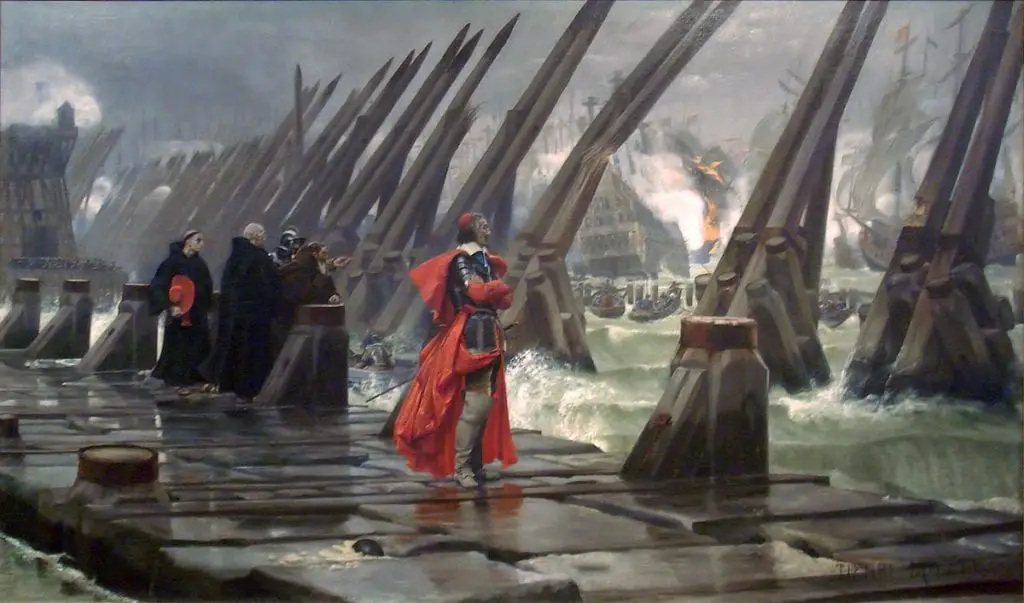
But still that is not why I am writing about The Musketeers today. No, I wanted to talk about Milady de Winter and Rochefort. They are both villains in the show. At some point Milady de Winter is more an antagonist force than the villainTM, but she is a villainous figure without a doubt. And Rochefort is without a doubt the main villain of season 2. Oh and they have another common point. They have a ‘romantic’ interest in one of the good guys.
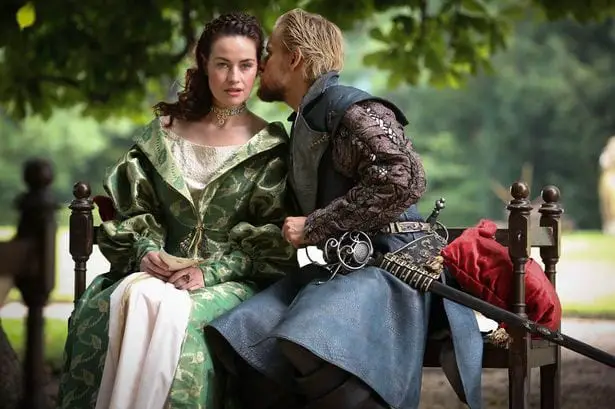
Villainous love interests
I have a confession to make: villainous love interests are my weakness. Really if I see some sort of mutual attraction and flirting between a hero and a villain I will ship it. No really, the possibility of a relationship between Kara and Lena Luthor nearly made me watch Supergirl (nearly because I never managed to get past the two first episodes).
However the idea of a romance between a hero and a villain, and more precisely between an heroine and a villain, is not always well received. It is deemed problematicTM, unhealthy, endorsing abuse etc… To that I want to answer two things. First does it ever get cold on the moral high ground? And more importantly, can we talk about this properly before starting to brand people with ignominious fleur-de-lis?
Because what one likes in fiction and why we like it is different from one person to another. Personally, what I like about villainous love interests is that if the characters want to end-up in a relationship they have to grow. Sure at some point the relationship between the two characters might be toxic but the point is to have them change their ways. For the villain it requires a redemption arc and I love redemption arcs. And if the relationship doesn’t work because of the irreconcilable values of the characters, well, in this case it is a tragedy. And I love that too (I am French after all). So this is a win win situation for me.
However I have to agree with one thing: it is important to differentiate here between a villainous love interest, which pre-suppose love therefore a mutual relationship between two characters, and a villain having a one-sided ‘romantic’ interest that they impose on a hero. Because the later might be described as a stalker, a sexual harasser, an abuser etc. You can still like those characters (I do sometimes) but supporting their ‘relationship’ is something else. Not that aren’t reasons to want to explore those kind of dynamics but simply putting your shipper glasses on without altering the canon dynamic might very well reenforce harmful tendencies that exists in the real world.
Yet the line between a villainous love interest and a villain whose ‘love’ (or obsession) is the very thing that make them a villain can be a thin one. And that’s why I wanted to talk about Milady de Winter and Rochefort. Because they are marvelous example of both.
Milady de Winter
Milady de Winter is one of Richelieu’s agent in season 1. She is clever, ruthless, murderous, charming, a bit vain, and absolutely ready to use all the strings to her bow in order to reach her goal. Among other things she is an assassin, a thief, and a spy. She has no hesitation to hurt and kill to get where she wants. It’s her who falsely testifies against Ninon de Larroque, accusing her of rape and homosexuality, and causing her downfall. She also kidnaps Constance, d’Artagnan’s lover. And she actively participate in every tentative to destroy the musketeers. In season 2 she isn’t really on the big bad’s side but she is still mainly motivated by her own self interest and has little care for the one she hurts.
In short Milady is a true antagonist. But that’s not all there is to her character. Milady de Winter is also Athos’ wife, one of our heroes. Their story is tragic. She lied about who she was to marry him. His brother discovered it, tried to blackmail her with it, and attempted to rape her. She fought back and killed him. But when Athos discovered the original duplicity of his wife he didn’t believe her versions of the events. He condemned her to be hanged for murder. Milady survived/escaped without Athos knowing it (The Musketeers is very much a sword and cape TV-Show; this kind of things happens). She swore to have her vengeance.
This the situation led to one of the funniest lines in the show. After having learned what happen between Athos and his wife and believing her dead, d’Artagnan saved Athos from a fire. Athos, completely drunk says that his wife started the fire and d’Artgnan answers incredulously “are you saying the ghost of your dead wife tried to kill you?” .
A villainous love interest?
But that’s not all. Milady’s story leads her to want to destroy the musketeers and Athos particularly. And in the same way Athos wants to stop her. There is just a tiny little detail: they clearly still have feelings for each other. And that complicates their constant fighting. A lot. Sure the all thing is drowned in angst and in Athos’ man’s pain. But still, they love each other.
By the end of season two they team up to defeat Rochefort. And of course they acknowledge their feelings etc etc. Sure they don’t end-up together and I have some fear about what is going to happen in the last episode of season 3. But still both characters have done some considerable growing to reach a point where they can start counting on each other and confess their feelings. Athos accepted that his brother was the guilty party and he should have protected Milady. Milady started to see a possibility of a life when she isn’t always doing the wrong thing.
Long story short Milady de Winter is a good character and a great villainous love interest.
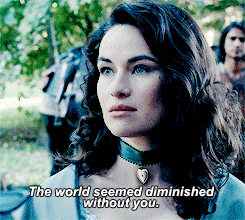
Comte de Rochefort
(And suddenly there is a de in there?) The Comte de Rochefort is the main antagonist of season 2. He is a French noble who has spend years in prison in Spain being tortured. He finally escaped them at the beginning of season 2 (actually he was let go) and come back to Paris with more than displeased musketeers. Indeed Rochefort used to be another of Richelieu’s creatures. Expect Richelieu is dead and Rochefort is now working as a double agent for Spain. Slowly he works his way in the royal family trusted cycle before becoming first minister.
But what is Rochefort’s personal motivation for accessing power and isolating the royal family? Well you see Rochefort is in love with Anne of Austria, the Queen. And him accessing power will (with an early, but not too early, demised of Louis XIII), in time, allow him to be everything in Anne’s life. Her counsellor, her first minister, her friend, her knight, her lover… He is deeply persuaded that his feelings are mutual. And that’s why he start a campaign to slowly isolate Anne. The loyalty of her servants is bought to his cause, or they are blackmailed in working for him. He tries to have her distrust every single one of loyal subject. And when he can’t manage that he gets rid of them.
To add the perfect finishing touch to his absolute creep’s demeanor he also frequents a sex-worker that he forces to dress like Anne and to speak to him from a script he has written. Oh and at the exception of Anne all women are unfaithful being that can’t be trusted. Voilà voilà. I am pretty sure that next to creep in the dictionary there is a picture of Rochefort. And yet… Well first Rochefort is a fantastic character, really interesting. But most importantly:
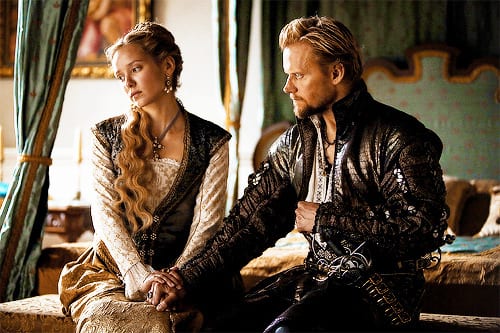
Anne trusted him, thought of him as a friend. You see Rochefort was her tutor when she was an adolescent, he taught her about French etiquette. She never saw him as an attractive antagonistic force . Or as troubling obscure presence. No he was someone she could trust.
A villainous love interest?
Here we see an entirely different dynamic from the one between Athos and Milady. Here Rochefort isn’t a villain whose romantic interest might eventually lead him to do the good thing (no matter if that actually works or not). Or the contrary a villain whose romantic interest might eventually lead the hero to do bad thing. He is a man projecting his own obsession on someone who trust him. Worse, his obsession actually lead down a path were he hurts the object of his desire. And of course he can’t face the truth. The moment when he confronts Anne about his cross she has given to Aramis by saying “you have promised you would wear it always” and she answers with all the graces in the world despite her terror «I was 14.» is symptomatic of his disillusion.
Indeed Anne isn’t secretly in love with him. She is secretly in love with Aramis who is the real father of her child. And since this broke Rochefort’s fantasy and brought Anne back into the realm of humanity, he must punish her. Punish her by destroying her. He reveals the true lineage of her child and goes as far as wanting her dead.
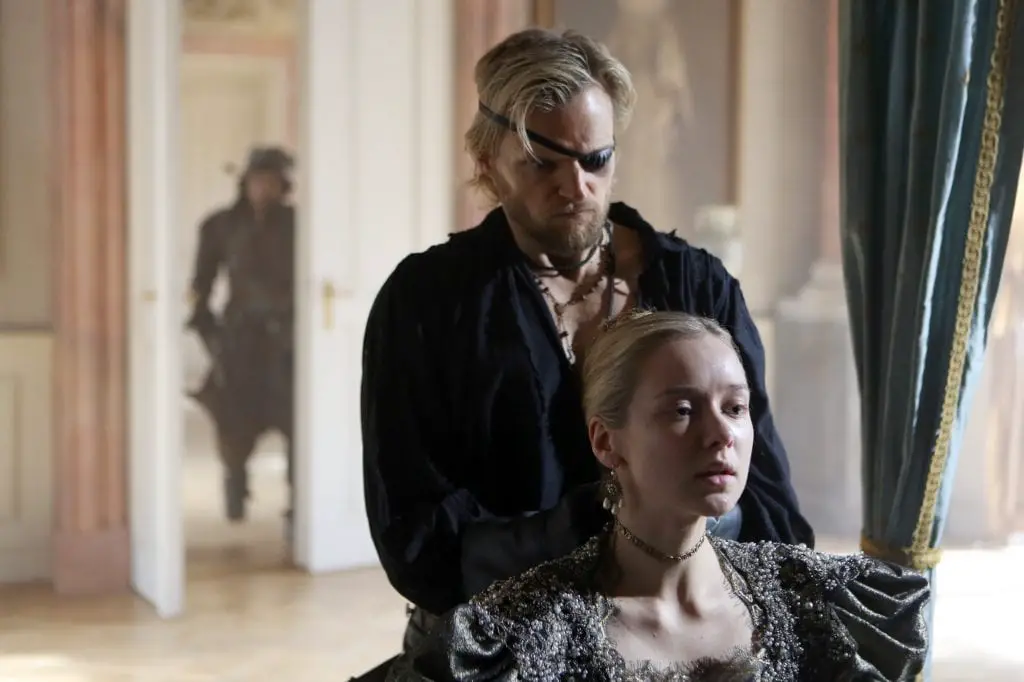
There are several moments for Anne to voice her own opinion about the situation. My favorites are “know this, Rochefort: in all that time, I did not think of you once” after Rochefort told her that the only thing keeping him sane in Spain was the fought of her. And of course “you will never touch me again” when he comes to kill her.
Rochefort’s obsession with Anne wasn’t romantic. It was twisted, wrong, and dreadfully interesting to watch. Rochefort wasn’t a villainous love interest for Anne. His love was a villain for Anne.
Conclusion
Both Rochefort and Milady are good villains and interesting characters but the comparison stops there. While Milady is a villainous love interest, and a good one at that, Rochefort isn’t. His ‘love’ make him a villain. Whereas Milady’s love offers her a chance to be better, or to do better at least for one person, Rochefort’s ‘love’ can only bring him lower in depravity. It isn’t just a villainous love interest turned tragic. It was ‘false’ since the beginning.
This is an interesting dynamic to explore but, at the difference of villainous love interest, not to romanticize.
Image Courtesy of the BBC

